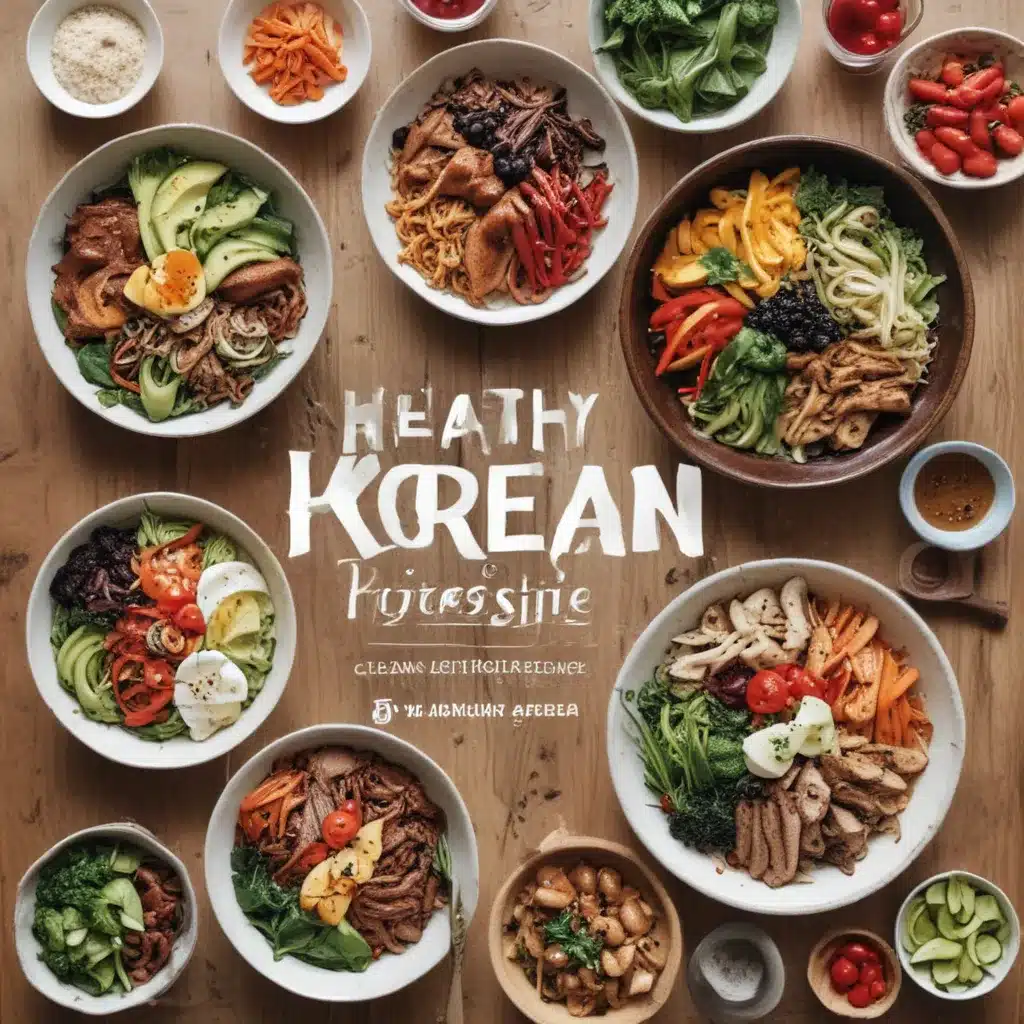
Embracing the Power of Korean Cuisine: A Flavorful Journey to Better Health
As a self-proclaimed foodie, I’ve always been intrigued by the rich tapestry of Korean cuisine. While I may not have grown up with the flavors of Seoul, I’ve found myself drawn to the vibrant colors, enticing aromas, and undeniable health benefits that Korean dishes offer. Recently, I’ve made it my mission to dive deeper into the world of healthy Korean cooking, and let me tell you, the discovery has been nothing short of life-changing.
Unraveling the Secrets of Korean Cuisine
When I first started exploring Korean recipes, I was pleasantly surprised by the sheer variety of dishes that could be considered “healthy.” From the ubiquitous bulgogi to the delectable kimchi, the culinary landscape of Korea is a veritable treasure trove of nutritious delights. [1] What sets Korean cuisine apart is its emphasis on balance, with a harmonious blend of protein, vegetables, and grains in each meal.
One of the standout features of Korean food is the use of fermented ingredients, such as kimchi and doenjang (fermented soybean paste). These fermented foods are not only packed with flavor but also teeming with probiotics, which are essential for gut health. [2] As someone who’s constantly on the lookout for ways to support my digestive system, this discovery was a game-changer.
Embracing the Korean Mindset: Moderation and Variety
Another aspect of Korean cuisine that I find truly inspiring is the emphasis on moderation and variety. Rather than piling on massive portions of a single dish, Koreans typically serve an array of small plates, known as banchan, alongside a main course. This approach not only encourages portion control but also allows for a more diverse and balanced nutritional intake. [3]
As someone who’s tried (and sometimes failed) to stick to restrictive diets, I’ve come to appreciate the Korean philosophy of enjoying food in moderation. It’s a refreshing change from the all-or-nothing mentality that can often lead to burnout and frustration.
Discovering the Versatility of Korean Ingredients
One of the things that has impressed me most about Korean cuisine is the versatility of its ingredients. Take, for instance, the humble gochujang, a fermented chili paste that adds a delightful kick to dishes. This versatile condiment can be used to marinate meats, add depth to stir-fries, or even as a base for healthy dipping sauces. [4]
Another ingredient that has become a staple in my kitchen is the ever-popular kimchi. While traditionally made with napa cabbage, kimchi can be crafted from a variety of vegetables, each with its own unique flavor profile. I’ve found that experimenting with different kimchi variations, such as radish or mustard greens, adds an exciting twist to my meals and keeps my taste buds constantly engaged.
Reinventing Classics: Healthy Korean Recipes for the Modern Palate
As I’ve delved deeper into the world of Korean cuisine, I’ve discovered a wealth of recipes that not only satisfy my cravings but also nourish my body. One of my personal favorites is the Korean beef bulgogi bowl, a dish that I’ve adapted to be both flavorful and nutritious. [5] By using lean ground beef and swapping out the traditional white rice for cauliflower rice, I’ve managed to create a delectable meal that’s low in carbs and high in protein.
Another Korean-inspired recipe that has become a regular in my meal rotation is the Korean-style stir-fry. By incorporating a variety of colorful vegetables, such as broccoli, bell peppers, and mushrooms, and seasoning the dish with a savory gochujang-based sauce, I’ve been able to create a dish that’s both visually appealing and bursting with flavor. [6]
Embracing the Korean Culinary Philosophy
As I continue my journey into the world of healthy Korean cooking, I’m constantly in awe of the depth and complexity of this cuisine. The emphasis on balance, moderation, and the use of nutrient-dense ingredients has truly transformed the way I approach meal planning and preparation.
But beyond the tangible health benefits, what I’ve come to appreciate most about Korean cuisine is the underlying philosophy that guides it. The idea of taking the time to savor each bite, to appreciate the interplay of flavors and textures, and to share a meal with loved ones is something that I believe we could all benefit from adopting.
So, whether you’re a seasoned Korean food enthusiast or simply looking to explore new culinary horizons, I encourage you to dive headfirst into the world of healthy Korean recipes. From the vibrant kimchi to the hearty bulgogi, the possibilities for nourishing and delicious meals are endless. So, let’s embark on this flavorful journey together and discover the true power of Korean cuisine.
[1] Knowledge from https://www.wellplated.com/korean-beef-bowl/
[2] Knowledge from https://www.eatingwell.com/recipes/19713/cuisines-regions/asian/korean/
[3] Knowledge from https://www.maangchi.com/talk/topic/what-are-the-healthy-korean-foods
[4] Knowledge from https://healthyrecipesblogs.com/korean-ground-beef/
[5] Knowledge from https://www.naturaldeets.com/kalbi-short-ribs-delicious-korean-recipe/
[6] Knowledge from https://www.shape.com/healthy-eating/diet-tips/9-healthy-korean-recipes-you-can-make-home
